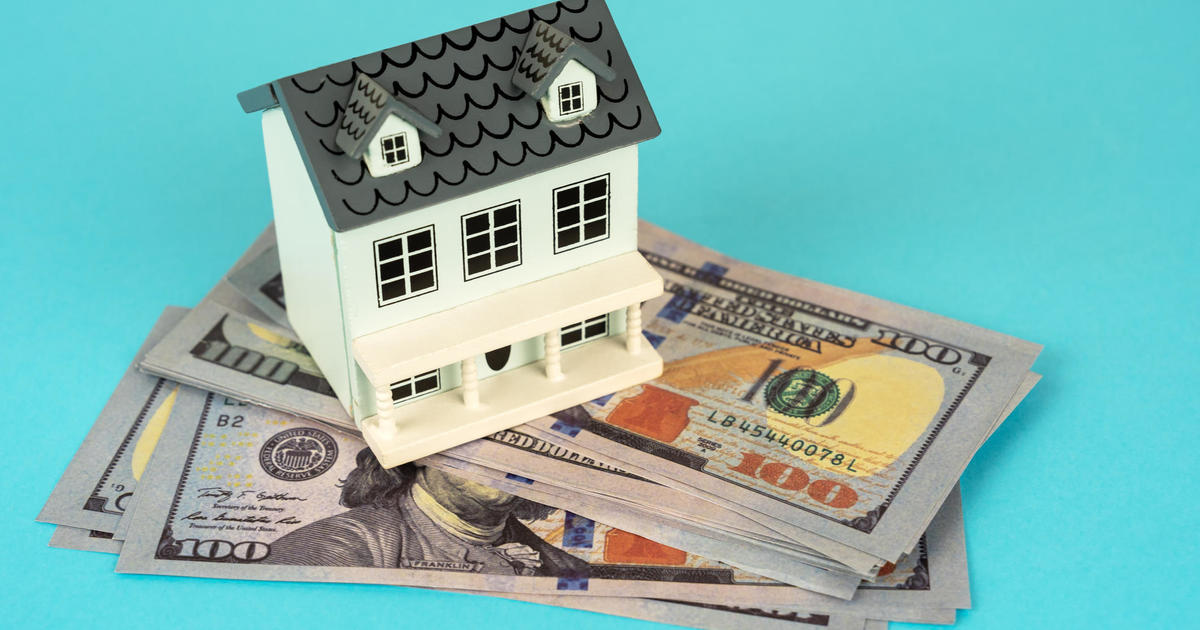Dow drops 900 points after first case of Omicron variant in U.S. revealed
An early stock market rally on Wall Street went thud on Wednesday following confirmation of the first case of COVID-19 linked to the newly discovered variant Omicron in the U.S.
The Dow had been up more than 500 points, or almost 2%, by late morning Wednesday, but reversed course on the latest pandemic news and dropped 900 points to end the day down 1.34%, at 34,022.
The afternoon pullback is the latest dizzying move for Wall Street's benchmark, which sank 2.3% on Friday for its worst loss since February, only to then rise 1.3% on Monday and then fall 1.9% on Tuesday.
The wild movements are partly the result of investors struggling to handicap how much damage the newest coronavirus variant will do to the economy. Markets were already headed lower Wednesday afternoon when the White House announced that the first case of the Omicron variant had been found in the U.S., in a person who recently had returned from South Africa.
"Investors are going to have to get used to the idea that this is not going to be the last variant," said Liz Young, chief investment strategist at SoFi. "This is likely something that is with us for a while and we have to learn to live with it and manage growth from an investment standpoint."
Another weight dropped on Wall Street Tuesday when the head of the Federal Reserve said that it may halt its immense support for financial markets sooner than expected amid persistently high inflation sweeping the world.
But since climbing out of its early 2020 collapse caused by the first wave of COVID-19, one hallmark of the stock market's powerful run has been the continued willingness by bargain-hunting investors to buy following any dip in prices. That lasting habit has helped the S&P 500-stock index set 66 all-time highs so far in 2021, the second-most on record for a year, according to S&P Dow Jones Indices.
It also helped the Dow initially climb 520 points Wednesday. Then came Omicron. Not only did the index of 30 blue-chip stocks fall Wednesday afternoon but so, too, did the broader S&P 500 (down almost 1.2% for the day) and the tech-heavy Nasdaq composite (down 1.8%).
Investors got some better-than-expected data on the economy. A report from the Institute for Supply Management showed that growth in the U.S. manufacturing sector accelerated a touch faster last month than economists expected.
A separate report from payroll processor ADP said that non-government employers hired more people in November than economists expected. That could raise expectations for Friday's more comprehensive jobs report from the U.S. government, though the ADP report doesn't have a perfect track record predicting it.
A stronger economy would burn more fuel, and crude oil prices initially rose, sending Benchmark U.S. crude 2.1% higher early Wednesday. By mid-afternoon, it was down 0.8% to $65.64 per barrel. It briefly dropped below $65 the day before. Brent crude, the international standard, slipped 0.2%.
A measure of fear on Wall Street also eased, falling more than 15%. But the VIX, which shows how worried investors are about upcoming drops for the S&P 500, is still well above where it was before Omicron walloped markets worldwide after Thanksgiving.
The possibility of less help for markets from the Fed continues to hang over Wall Street. Chair Jerome Powell said Tuesday the central bank will consider an earlier halt to its monthly purchases of bonds, which are meant to goose the economy by keeping rates low for mortgages and other long-term loans.
That would open the door for the Fed to raise short-term interest rates, diluting one of the main reasons for the S&P 500's more than doubling since late March 2020. Low rates encourage investors to pay higher prices for stocks and have helped deflect criticism that the market had become too expensive. So a faster ramp up in short-term rates threatens stocks, but analysts say it could also be an encouraging signal about the Fed's confidence in the economy's strength.
Analysts also warn that the market is likely to remain jumpy until more clarity arrives on Omicron's ultimate impact. With no answer yet on the effectiveness of vaccines against the variant, it's only a guess on whether governments will reinstate tough restrictions, people will be scared away from businesses or inflation will worsen.



